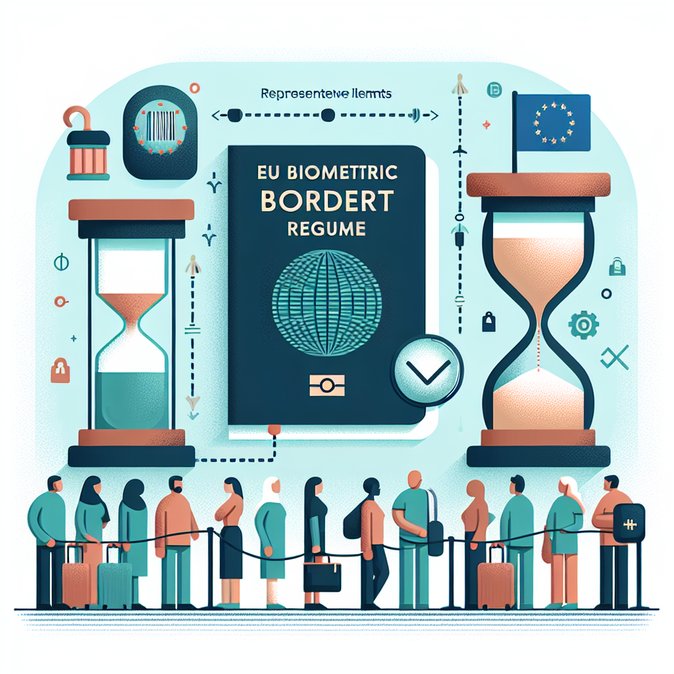
Exactly two weeks after the European Union began phasing in its biometric Entry/Exit System (EES) on 12 October, Germany is already confronting growing pains. Düsseldorf Airport—Germany’s pilot site—saw non-EU passengers wait up to 75 minutes at the new self-service kiosks during the 25 October school-holiday peak. Border police told local media that many travellers arrived without understanding they would be fingerprinted and photographed, slowing the process further.
Frankfurt Airport has published a notice that the classic manual passport stamp will remain in place only until 29 October, after which third-country nationals will be funnelled into EES channels. The hub has installed 120 biometric kiosks but warns that “extended processing times are likely in the first weeks.” Munich will follow in mid-November, while Berlin-Brandenburg plans full implementation by early December.
Airlines and travel-management companies are scrambling to update traveller communications. Lufthansa added EES briefing text to boarding passes for non-EU passengers, while several TMCs have embedded pop-up advisories into online booking tools. Corporate mobility teams are encouraging travellers to build an extra 45 minutes into airport arrival times and, where possible, to connect through Zürich or Vienna—airports not yet fully subject to EES.
From a compliance perspective the system is significant: entry/exit data will be cross-checked against Schengen overstay limits and shared with immigration authorities across the bloc. Employers that rotate non-EU staff on 90/180-day travel schedules will now have less margin for error.
German border authorities concede that the learning curve is steep but insist the system will ultimately speed border crossings once biometrics are enrolled. The roll-out timeline calls for nationwide EES coverage by 10 April 2026, well ahead of the separate ETIAS travel authorisation that is slated to become mandatory in 2027.
Frankfurt Airport has published a notice that the classic manual passport stamp will remain in place only until 29 October, after which third-country nationals will be funnelled into EES channels. The hub has installed 120 biometric kiosks but warns that “extended processing times are likely in the first weeks.” Munich will follow in mid-November, while Berlin-Brandenburg plans full implementation by early December.
Airlines and travel-management companies are scrambling to update traveller communications. Lufthansa added EES briefing text to boarding passes for non-EU passengers, while several TMCs have embedded pop-up advisories into online booking tools. Corporate mobility teams are encouraging travellers to build an extra 45 minutes into airport arrival times and, where possible, to connect through Zürich or Vienna—airports not yet fully subject to EES.
From a compliance perspective the system is significant: entry/exit data will be cross-checked against Schengen overstay limits and shared with immigration authorities across the bloc. Employers that rotate non-EU staff on 90/180-day travel schedules will now have less margin for error.
German border authorities concede that the learning curve is steep but insist the system will ultimately speed border crossings once biometrics are enrolled. The roll-out timeline calls for nationwide EES coverage by 10 April 2026, well ahead of the separate ETIAS travel authorisation that is slated to become mandatory in 2027.








